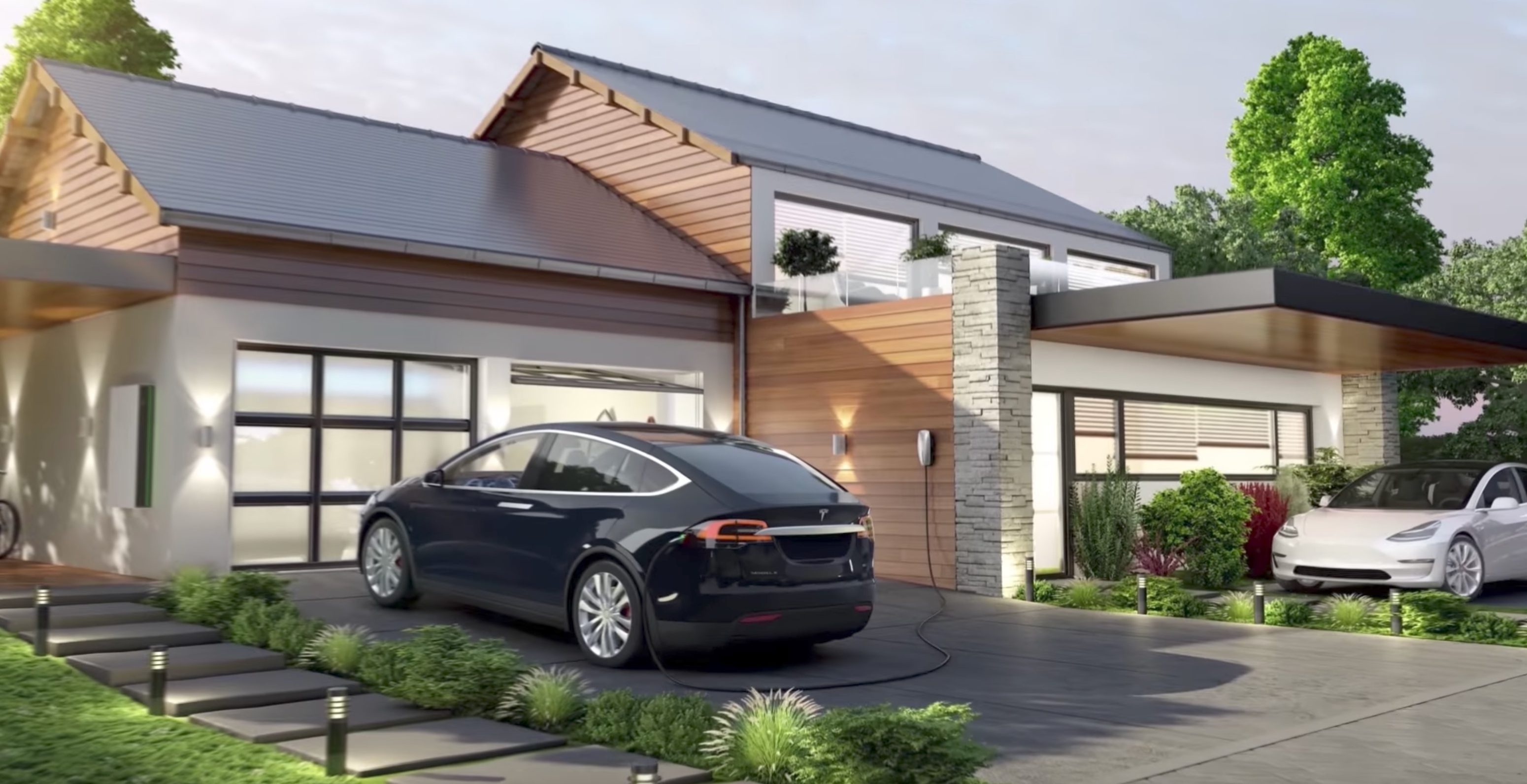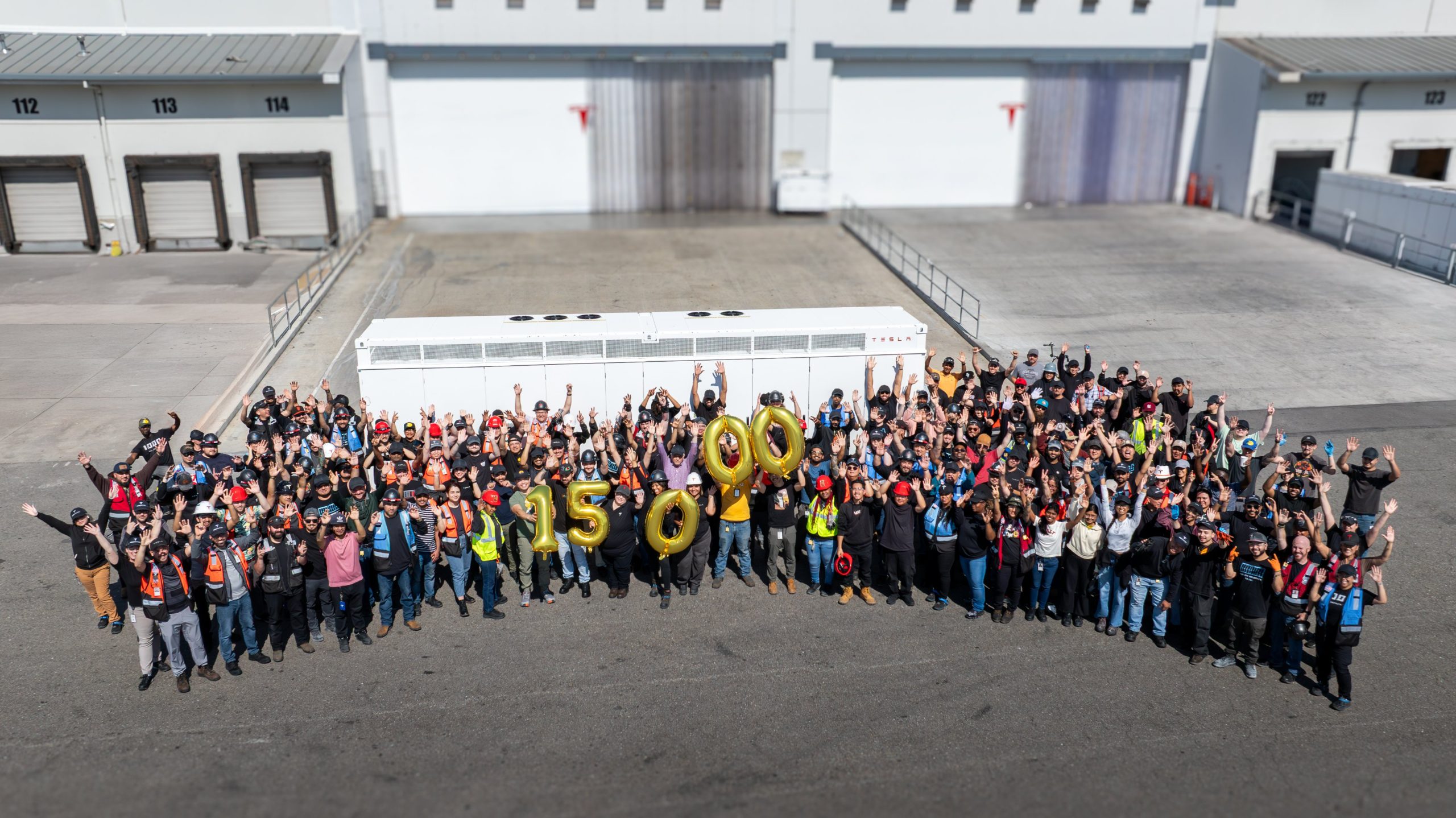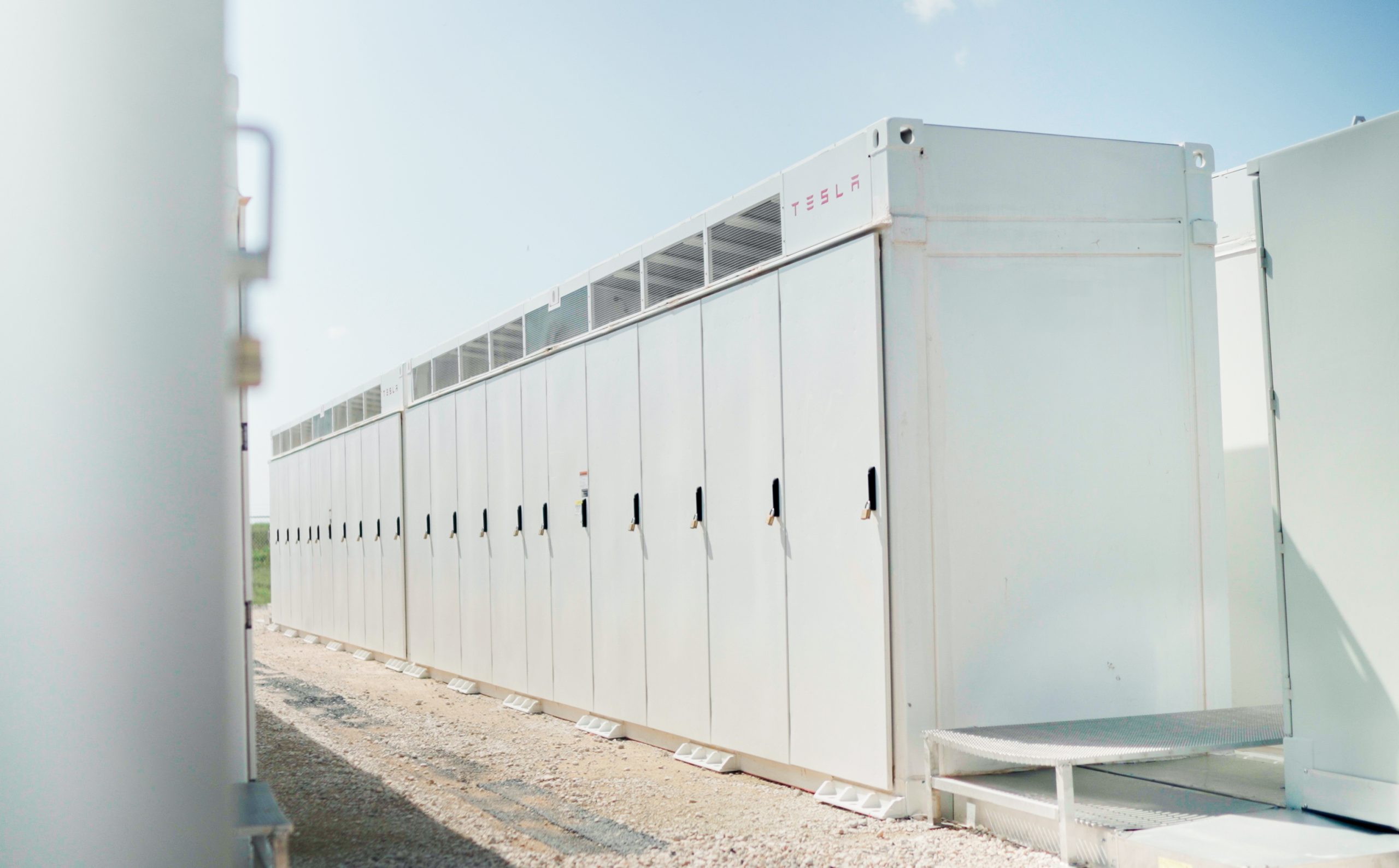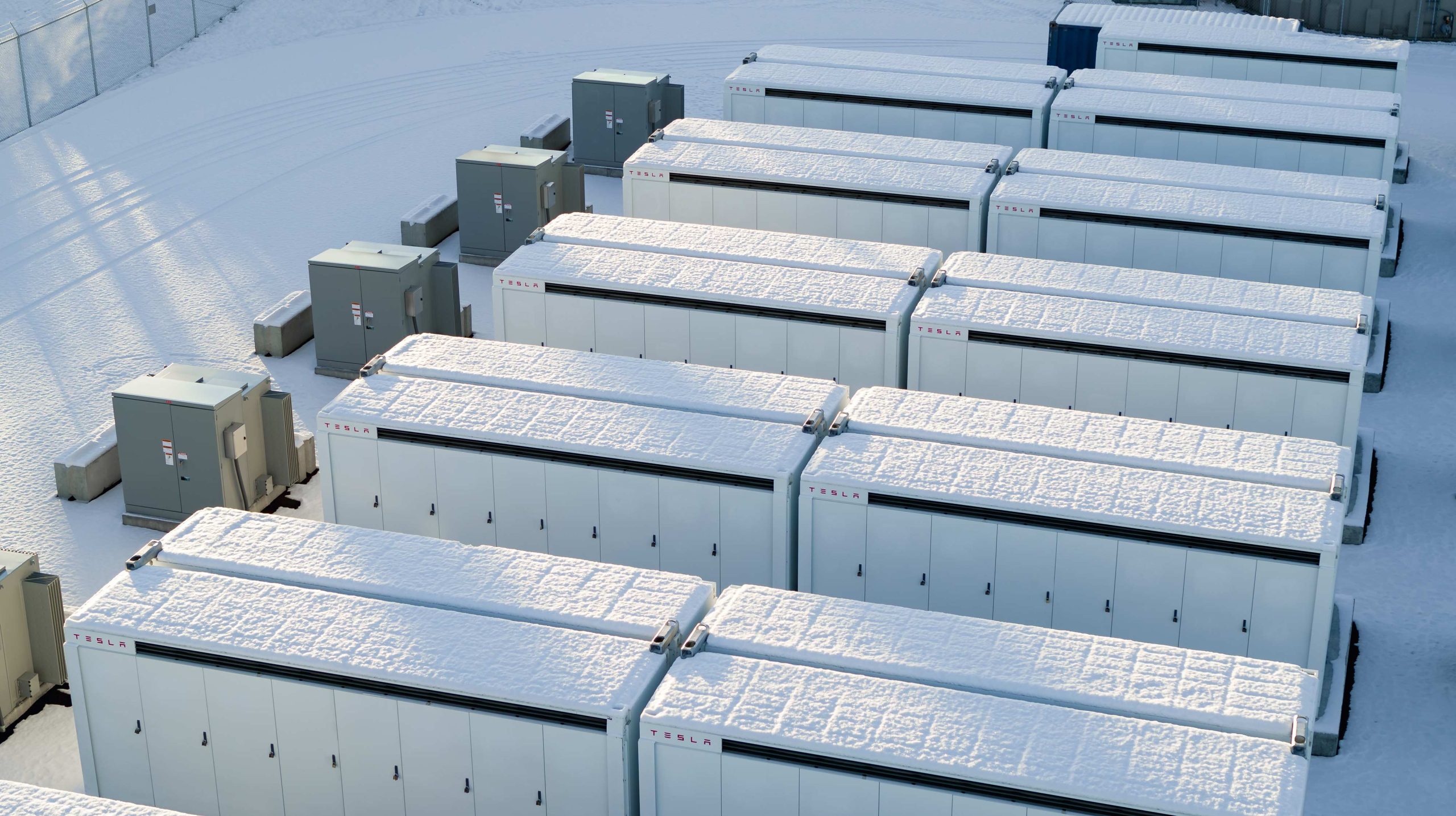

Energy
Tesla is currently ‘aggressively ramping’ energy business, says CTO JB Straubel
Amid rising competition in the residential solar market from rivals such as SunRun, Tesla CTO JB Straubel stated that Tesla is ramping up its efforts to bolster its energy business. According to Straubel, the reception of the public to products like the Powerwall 2 and Solar Roof tiles has been similar to the Model 3. Thus, Tesla is now doing what it can to increase its capacity to produce its energy products as fast as it can.
Straubel’s update to Tesla’s energy business came as a statement to USA Today, which recently published an article about the residential solar market in the United States. While the Tesla CTO did not provide the actual figures of its Powerwall 2 and Solar Roof reservations, Straubel did state that for now, Tesla is unable to keep up with deposits being put down for the products. Straubel also emphasized that Tesla is not in any way stepping back from the residential energy business.
“No one should see us as stepping back from solar. In fact, it’s the opposite. It’s like with Model 3. People have come flooding in and are waiting on the product. So now we’re aggressively ramping our capacity,” he said.
To address the demand for its residential products, Straubel stated that production of the Powerwall 2 is set to pick up later this year, while output for Solar Roof tiles is expected to accelerate in 2019. The Tesla CTO expects these initiatives to reduce the wait times for these energy products.
The Tesla CTO’s latest statement comes as an encouraging update to the company’s residential energy business, much of which has been under the news radar for most of the year. The first consumer installations of the Solar Roof began earlier this year, and reports emerged that Gigafactory 2 in Buffalo, NY is ramping up hiring, but apart from these, Tesla’s energy initiatives appear to be focused on large-scale industrial projects, such as its upcoming Powerpack farm in Victoria, and its virtual power plant in South Australia.
Tesla’s residential energy business in the United States took a blow last month, as well, with the company closing a dozen of its solar facilities across nine states in the country as part of its restructuring. Apart from this, Tesla also announced that it would not renew its partnership with Home Depot to sell its solar solutions and Powerwall 2 home battery storage units.
Regardless of these, the progress of Tesla’s industrial energy projects is indicative of the potential of its residential initiatives. Over the past year, after all, Tesla had all but proved that its battery technology is a feasible alternative to conventional power solutions. The warm reception to its big battery in South Australia, which continues to support the region’s embattled energy grid, is a testament to this.
Considering the competition from its local competitors, Tesla would have to increase its push for its residential energy business in the United States. Solar analyst for GTM Research Allison Mond, for one, stated that Tesla could see its market share shrink in the coming quarters due to competitors and the company’s lack of focus on its solar products. Nevertheless, Straubel stated that market share is not really Tesla’s focus for its residential energy business.
“We’re focused intently on the customer experience, not on having a higher market share. We’re looking at the bigger picture,” he said.
During Tesla’s 2018 Annual Shareholder Meeting, Tesla CEO Elon Musk mentioned that the company is getting closer to a battery breakthrough. Addressing shareholders, Musk stated that Tesla is on pace to hit a battery cell cost of $100 per kWh by the end of 2018 depending on the stability of current commodity prices. Considering Straubel’s mention of a ramp in Powerwall 2 production later this year, it seems like Tesla’s push into residential solar could happen just as the company hits a breakthrough in its battery technology.
Energy
Tesla Lathrop Megafactory celebrates massive Megapack battery milestone
The Tesla Megapack is the backbone of Tesla Energy’s battery deployments.

The Tesla Lathrop Megafactory recently achieved a new milestone. As per the official Tesla Megapack account on X, the Lathrop Megafactory has produced its 15,000th Megapack 2 XL battery.
15,000 Megapack Batteries
Tesla celebrated the milestone with a photo of the Lathrop Megafactory team posing with a freshly produced Megapack battery. To commemorate the event, the team held balloons that spelled out “15,000” as they posed for the photo.
The Tesla Megapack is the backbone of Tesla Energy’s battery deployments. Designed for grid-scale applications, each Megapack offers 3.9 MWh of energy and 1.9 MW of power. The battery is extremely scalable, making it perfect for massive energy storage projects.
More Megafactories
The Lathrop Megafactory is Tesla’s first dedicated facility for its flagship battery storage system. It currently stands as the largest utility-scale battery factory in North America. The facility is capable of producing 10,000 Megapack batteries every year, equal to 40 GWh of clean energy storage.
Thanks to the success of the Megapack, Tesla has expanded its energy business by building and launching the Shanghai Megafactory, which is also expected to produce 40 GWh of energy storage per year. The ramp of the Shanghai Megafactory is quite impressive, with Tesla noting in its Q1 2025 Update Letter that the Shanghai Megafactory managed to produce over 100 Megapack batteries in the first quarter alone.
Tesla Energy’s Potential
During the first quarter earnings call, CEO Elon Musk stated that the Megapack is extremely valuable to the energy industry.
“The Megapack enables utility companies to output far more total energy than would otherwise be the case… This is a massive unlock on total energy output of any given grid over the course of a year. And utility companies are beginning to realize this and are buying in our Megapacks at scale,” Musk said.
Energy
Tesla Megapacks powers the xAI Colossus supercomputer
Tesla Megapacks step in to stabilize xAI’s Colossus supercomputer, replacing natural gas turbines. Musk’s ventures keep intertwining.

Tesla Megapack batteries will power the xAI Colossus supercomputer in Memphis to ensure power stability. The collaboration between Tesla and xAI highlights the synergy among Elon Musk’s ventures.
The artificial intelligence startup has integrated Tesla Megapacks to manage outages and demand surges, bolstering the facility’s reliability. The Greater Memphis Chamber announced that Colossus, recently connected to a new 150-megawatt electric substation, is completing its first construction phase. This transition addresses criticism from environmental justice groups over the initial use of natural gas turbines.
“The temporary natural gas turbines that were being used to power the Phase I GPUs prior to grid connection are now being demobilized and will be removed from the site over the next two months.
“About half of the operating turbines will remain operating to power Phase II GPUs of xAI until a second substation (#22) already in construction is completed and connected to the electric grid, which is planned for the Fall of 2025, at which time the remaining turbines will be relegated to a backup power role,” the Chamber stated.
xAI’s rapid development of Colossus reflects its ambition to advance AI capabilities, but the project has faced scrutiny for environmental impacts. The shift to Megapacks and grid power aims to mitigate these concerns while ensuring operational continuity.
The Megapack deployment underscores the collaboration among Musk’s companies, including Tesla, SpaceX, Neuralink, and The Boring Company. Tesla appears to be the common link between all of Musk’s companies. For example, The Boring Company built a tunnel in Giga, Texas. In addition, Musk has hinted at a potential collaboration between the Tesla Optimus Bot and Neuralink. And from January 2024 to February 2025, xAI invested $230 million in Megapacks, per a Tesla filing.
Tesla Energy reported a 156% year-over-year increase in Q1 2025, deploying 10.4 GWh of storage products, including Megapacks and Powerwalls. Tesla’s plans for a new Megapack factory in Waller County, Texas, which is expected to create 1,500 jobs in the area, further signal its commitment to scaling energy solutions.
As xAI leverages Tesla’s Megapacks to power Colossus, the integration showcases Musk’s interconnected business ecosystem. The supercomputer’s enhanced stability positions xAI to drive AI innovation, while Tesla’s energy solutions gain prominence, setting the stage for broader technological and economic impacts.
Energy
Tesla Energy celebrates one decade of sustainability
Tesla Energy has gone far since its early days, and it is now becoming a progressively bigger part of the company.

Tesla Energy recently celebrated its 10th anniversary with a dedicated video showcasing several of its milestones over the past decade.
Tesla Energy has gone far since its early days, and it is now becoming a progressively bigger part of the company.
Tesla Energy Early Days
When Elon Musk launched Tesla Energy in 2015, he noted that the business is a fundamental transformation of how the world works. To start, Tesla Energy offered the Powerwall, a 7 kWh/10 kWh home battery system, and the Powerpack, a grid-capable 100 kWh battery block that is designed for scalability. A few days after the products’ launch, Musk noted that Tesla had received 38,000 reservations for the Powerwall and 2,500 reservations for the Powerpack.
Tesla Energy’s beginnings would herald its quiet growth, with the company later announcing products like the Solar Roof tile, which is yet to be ramped, and the successor to the Powerwall, the 13.5 kWh Powerwall 2. In recent years, Tesla Energy also launched its Powerwall 3 home battery and the massive Megapack, a 3.9 MWh monster of a battery unit that has become the backbone for energy storage systems across the globe.
Key Milestones
As noted by Tesla Energy in its recent video, it has now established facilities that allow the company to manufacture 20,000 units of the Megapack every year, which should help grow the 23 GWh worth of Megapacks that have already been deployed globally.
The Powerwall remains a desirable home battery as well, with more than 850,000 units installed worldwide. These translate to 12 GWh of residential entry storage delivered to date. Just like the Megapack, Tesla is also ramping its production of the Powerwall, allowing the division to grow even more.
Tesla Energy’s Role
While Tesla Energy does not catch as much headlines as the company’s electric vehicle businesses, its contributions to the company’s bottom line have been growing. In the first quarter of 2025 alone, Tesla Energy deployed 10.4 GWh of energy storage products. Powerwall deployments also crossed 1 GWh in one quarter for the first time. As per Tesla in its Q1 2025 Update Letter, the gross margin for the Energy division has improved sequentially as well.
-

 Elon Musk2 weeks ago
Elon Musk2 weeks agoTesla investors will be shocked by Jim Cramer’s latest assessment
-

 Elon Musk1 day ago
Elon Musk1 day agoxAI launches Grok 4 with new $300/month SuperGrok Heavy subscription
-

 Elon Musk4 days ago
Elon Musk4 days agoElon Musk confirms Grok 4 launch on July 9 with livestream event
-

 News1 week ago
News1 week agoTesla Model 3 ranks as the safest new car in Europe for 2025, per Euro NCAP tests
-

 Elon Musk2 weeks ago
Elon Musk2 weeks agoA Tesla just delivered itself to a customer autonomously, Elon Musk confirms
-

 Elon Musk1 week ago
Elon Musk1 week agoxAI’s Memphis data center receives air permit despite community criticism
-

 News2 weeks ago
News2 weeks agoXiaomi CEO congratulates Tesla on first FSD delivery: “We have to continue learning!”
-

 News2 weeks ago
News2 weeks agoTesla sees explosive sales growth in UK, Spain, and Netherlands in June
















